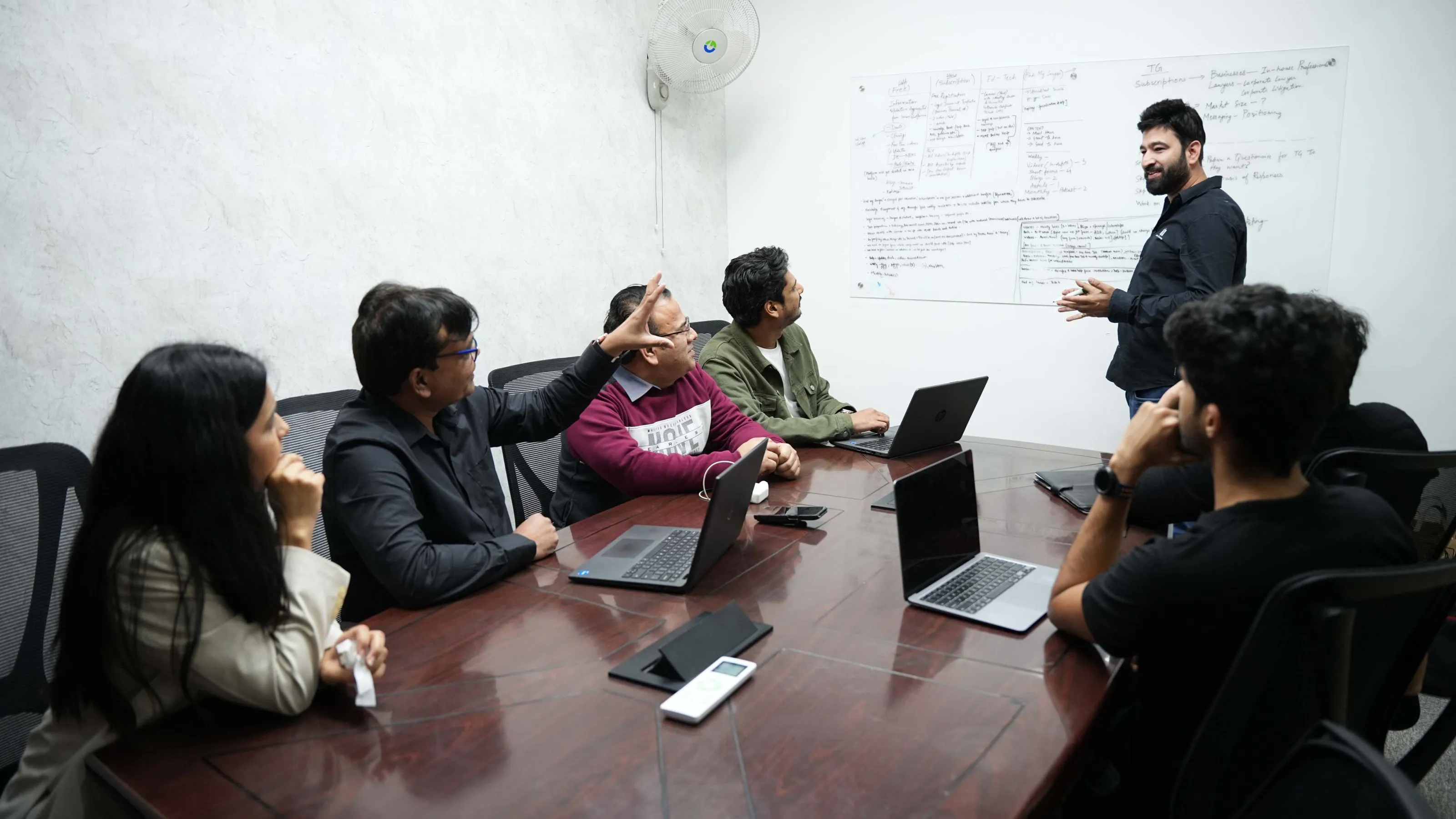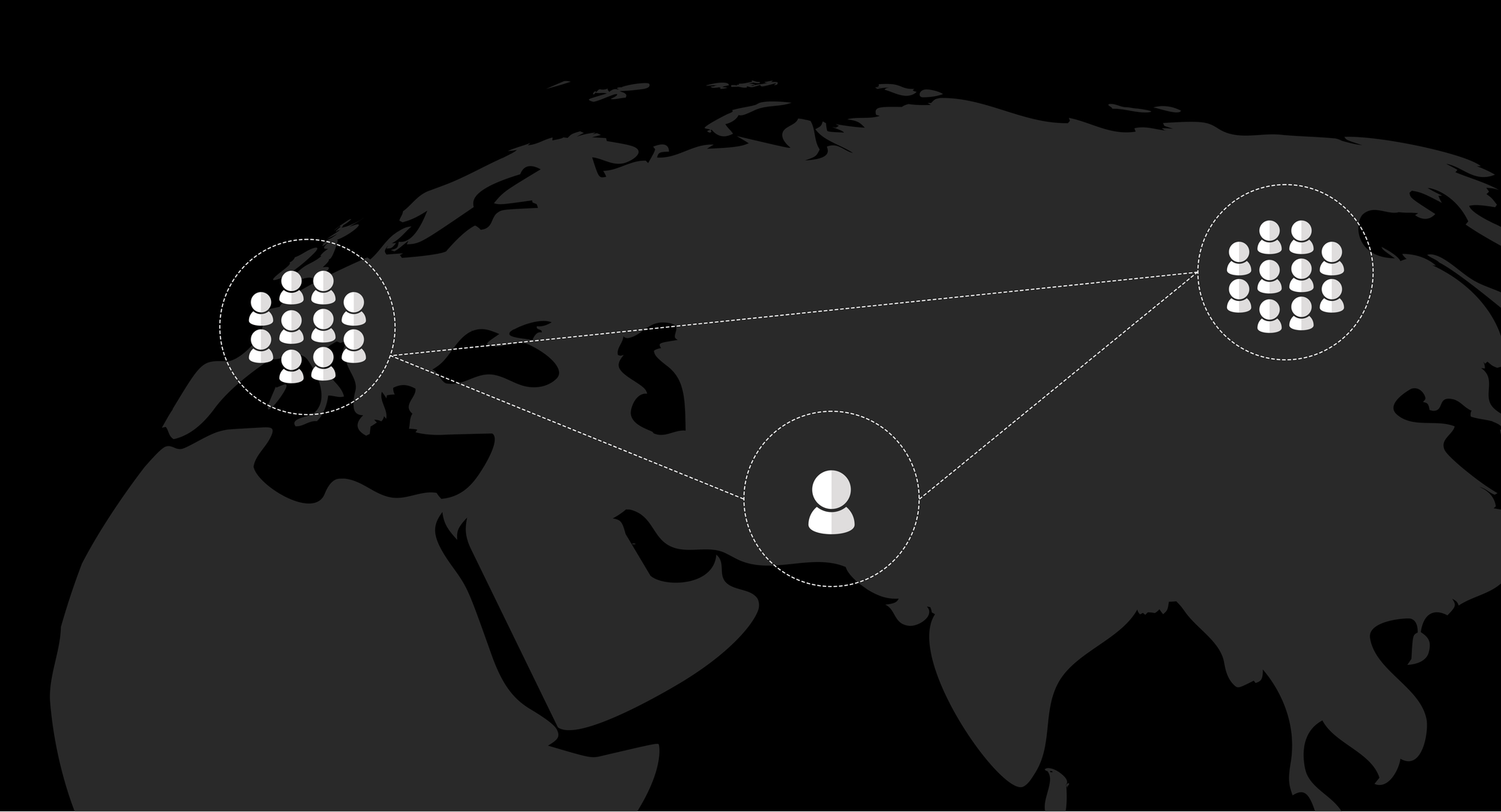Hire the best QA Engineers


Save and hire remote QA Engineers
A (QA) Quality Assurance Engineer is a professional who checks whether or not the product, typically software, meets the quality standards before the product is marketed. Their main objective is identifying and fixing bugs, inconsistencies, or usability problems which may affect how users experience or function. QA Engineers maintain a high level of quality within businesses; hence, they are very valuable to businesses, as this would greatly influence customer satisfaction and brand reputation. The costs will be much higher at the post-launch stage when fixing a problem won't be possible unless complete process is started again. QA Engineers also ensure product is up to the standard and has satisfactory performance. Hire a complete testing team for bug-free software and good quality, consisting of QA Engineers, manual testers, automation testers and QA testers.
Why pay £2,917 when you can pay £1,157?
Hiring a QA Engineer should be quick and affordable. At Black Piano, we work with you to find, hire and manage top talent from India, costing just £1,157 per month for executive roles. You can enjoy huge savings of up to 60% compared to £2,917 in the UK.
How do we do it? India’s large educated population, lower cost of living and favourable exchange rates make it easy to hire great people affordably. UK hiring costs are soaring, and with increases to minimum wage and Employers National Insurance (NICs), offshoring with Black Piano is the smartest way to control costs and protect margin.
We manage everything, from recruitment to payroll, compliance to HR, so you can focus on growing your business while keeping costs low and profits high. Partnering with Black Piano will revolutionise your bottom line so you can get back to enjoying or re-investing your hard-earned profits.
Why hire a QA Engineer?

Quality products and customer service
It would be good to have a QA Engineer looking into your product before it goes out into the world, to have a world-class quality product. The indications of defect, inconsistency, or usability characteristics usually get found as early as possible during the development phase to reduce the chances of user-visible flaws. Thus, a good tested product will be at par with or above expectations, leading to greater satisfaction and trust showing higher chances of return and word-of-mouth marketing by a customer. This is how reputation develops among consumers who would want a customer to develop a reputation for high-quality, reliable products. Not only do functional products stand the chance of being user-friendly, but also intuitive ability, anti-bug, and positive customer feedback contribute right towards loyalty and business growth.
Time and money saving
Investment in QA Engineers in the initial stages of product development can save a lot of time and money for the business in the long run. Mostly, complaints are addressed prior to the launch of a product, and this goes a long way to reducing post-launch repair scars associated with expensive emergency patching. The issue with a product that hits the market having "known issues" then leads to customer complaints, requests for returns, or even legal issues if the defect is bad enough. If there is a very robust QA practice, many problems can be caught during the development phase so that developers can take a proactive approach to remedy them, thus ensuring that releases are smoother and faster. Cost savings and greater resource efficiencies will accrue as development evolves less into troubleshooting and more into perfecting a product.


Automation to improve efficiency
Along with manual testing, QA Engineers bring automated testing methods which can make the testing phase of quality assurance easy. Automated tests shorten the amount of time required for carrying out repetitive activities such as regression testing and load testing and allow the QA team to concentrate on more complicated or exploratory forms of testing. With automated routine checks, businesses can speed up their testing and ensure that their product is continually improving as it moves through the process. This results in shorter development cycles and faster time-to-market, which is key for those industries moving very quickly. It can be seen that automation will not only enhance the overall process of quality assurance but also enable businesses to respond very fast to market demands without sacrificing quality.
Facilitate compliance and risk management
Most businesses have requirements related to compliance, especially in regulated industries such as the healthcare, finance, or cybersecurity sectors. QA Engineers play an integral role in ensuring that products meet compliance requirements to prevent any legal issues or hefty fines. They make sure that the products comply with the applicable regulations such as data protection laws or accessibility guidelines. They also conduct security testing to identify vulnerabilities that can be exploited. Hiring of QA Engineers in organisations reduces the chance of risks associated with non-compliance as well as reputational risk. These QA Engineers contribute to effective risk management through early identification of potential weaknesses and mitigation before they develop into much larger, costlier problems.

Time and money saving
Investment in QA Engineers in the initial stages of product development can save a lot of time and money for the business in the long run. Mostly, complaints are addressed prior to the launch of a product, and this goes a long way to reducing post-launch repair scars associated with expensive emergency patching. The issue with a product that hits the market having "known issues" then leads to customer complaints, requests for returns, or even legal issues if the defect is bad enough. If there is a very robust QA practice, many problems can be caught during the development phase so that developers can take a proactive approach to remedy them, thus ensuring that releases are smoother and faster. Cost savings and greater resource efficiencies will accrue as development evolves less into troubleshooting and more into perfecting a product.
Automation to improve efficiency
Along with manual testing, QA Engineers bring automated testing methods which can make the testing phase of quality assurance easy. Automated tests shorten the amount of time required for carrying out repetitive activities such as regression testing and load testing and allow the QA team to concentrate on more complicated or exploratory forms of testing. With automated routine checks, businesses can speed up their testing and ensure that their product is continually improving as it moves through the process. This results in shorter development cycles and faster time-to-market, which is key for those industries moving very quickly. It can be seen that automation will not only enhance the overall process of quality assurance but also enable businesses to respond very fast to market demands without sacrificing quality.
Facilitate compliance and risk management
Most businesses have requirements related to compliance, especially in regulated industries such as the healthcare, finance, or cybersecurity sectors. QA Engineers play an integral role in ensuring that products meet compliance requirements to prevent any legal issues or hefty fines. They make sure that the products comply with the applicable regulations such as data protection laws or accessibility guidelines. They also conduct security testing to identify vulnerabilities that can be exploited. Hiring of QA Engineers in organisations reduces the chance of risks associated with non-compliance as well as reputational risk. These QA Engineers contribute to effective risk management through early identification of potential weaknesses and mitigation before they develop into much larger, costlier problems.
What do QA Engineers do?
QA Engineers design and execute tests to ensure software quality. They focus on identifying bugs, improving functionality, and ensuring that products meet both user requirements and industry standards. Using manual and automated testing tools, they analyse system performance, troubleshoot issues, and work closely with developers to enhance software reliability.
How can a QA Engineer support your business?
QA Engineers ensure high-quality software by detecting bugs early in development, reducing risks, and improving product stability. Their work enhances user satisfaction by ensuring the product is free from defects, performs efficiently, and meets user expectations. By streamlining testing processes, they reduce costs and time-to-market.
How to hire the best QA Engineer?
Define the testing requirements for your project. Review experience with automated and manual testing, as well as tools like Selenium, Jenkins, and TestNG. You can also simply connect with us, and we will find you a QA Engineer with technical and cultural proficiency. As an EoR, we find-hire-manage your remote QA Engineer, so that you can just focus on work. If you want to hire the best talent within your budget- Connect with Black Piano!
What are the qualifications/certifications required by a QA Engineer?
A QA Engineer often has degrees in Computer Science or related fields. Certificates in testing, Salesforce and Microsoft add great value.
Explore our pricing

We’re all about simple, transparent pricing. All employment compensation and overheads are covered. No up-front fees. No ‘starting’ fees. No hidden fees.










































.webp)










